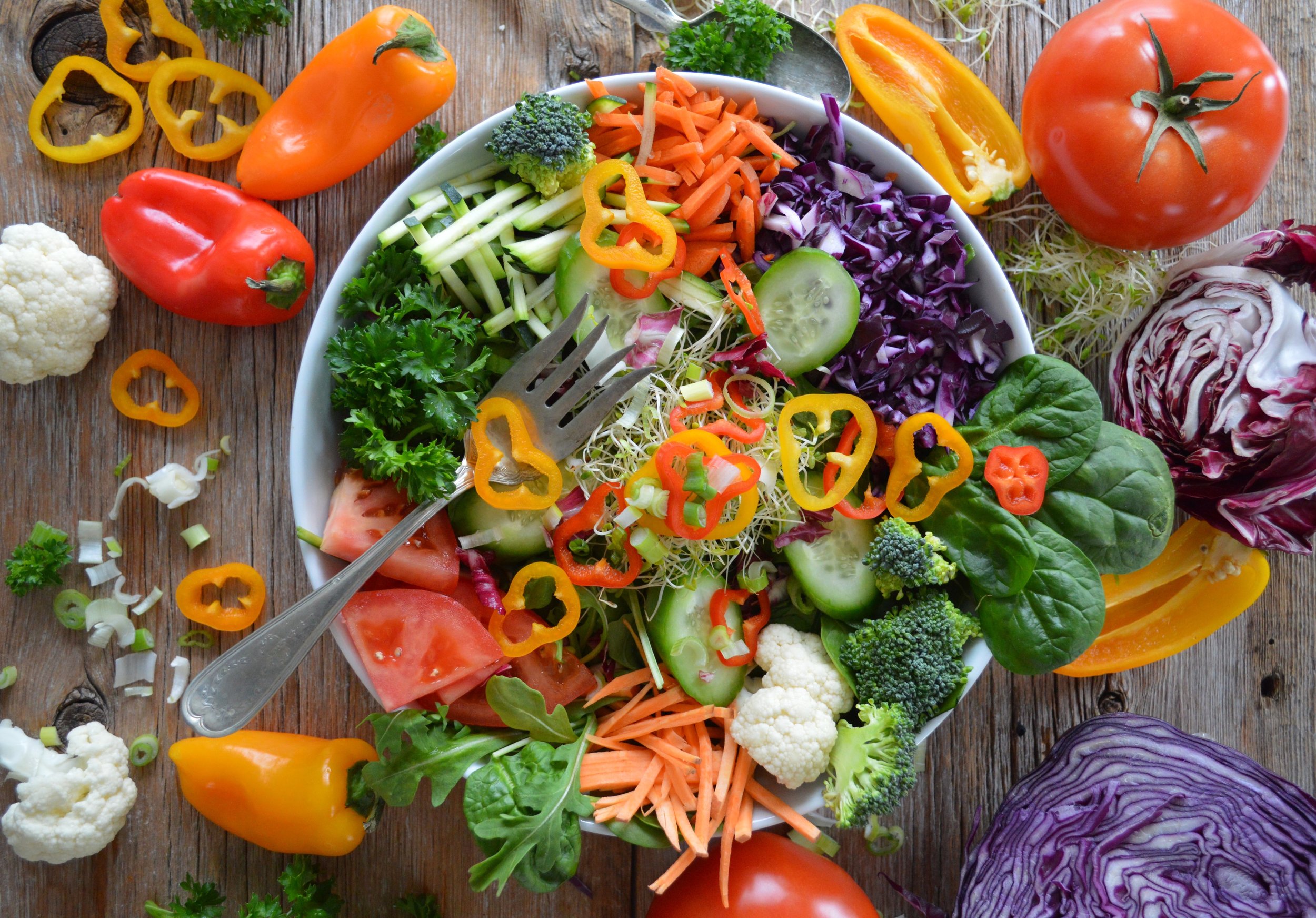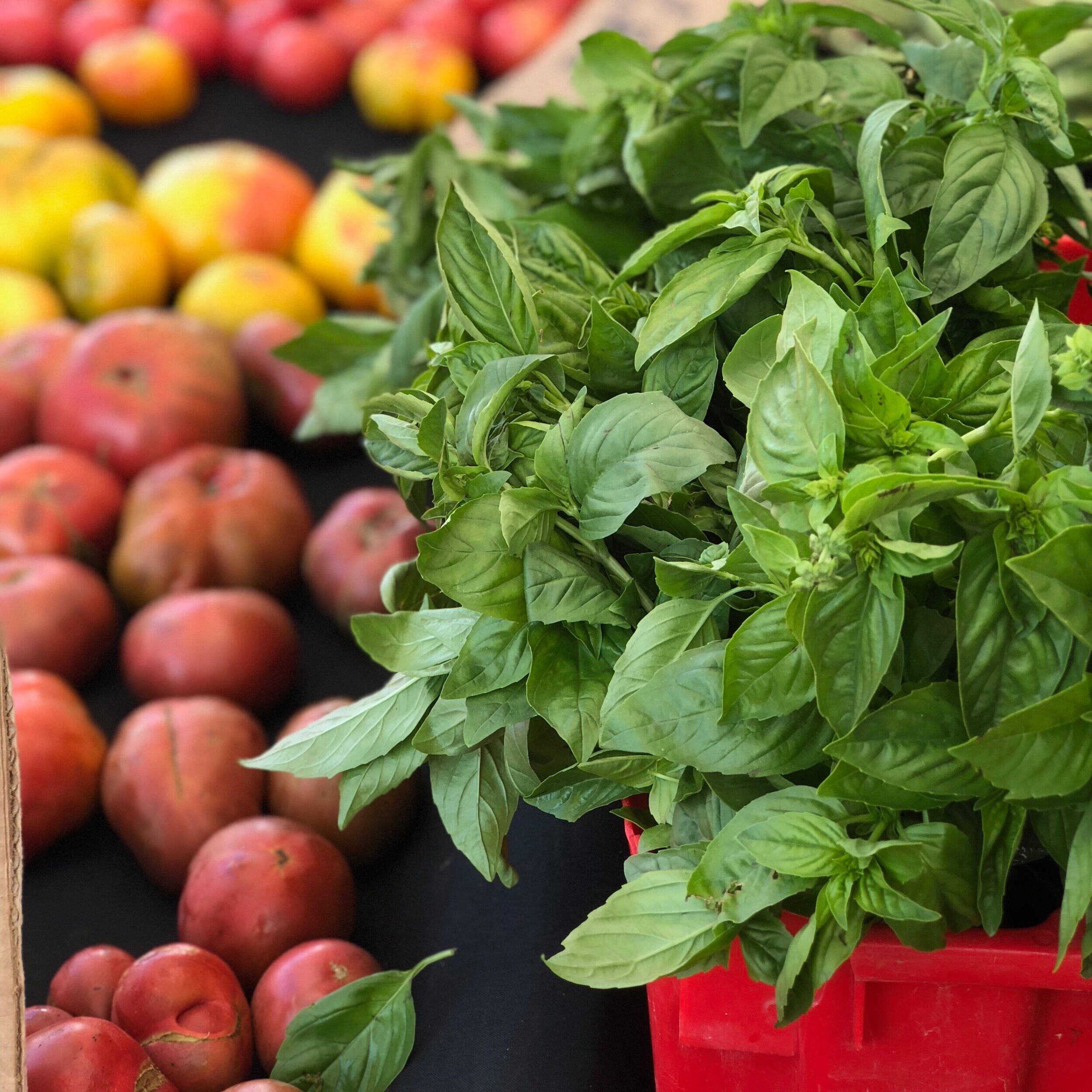Eating Healthy On A Budget
/“You don’t need a silver fork to eat good food.”
It’s a brand new year. A lot of people will make resolutions in January to eat better and live a healthier, more conscious life. Then they will fall off the wagon by February. The problem is that eating more consciously is a habit that takes practice, just like establishing any new habit. And it can also be brutally expensive.
When my wife and I scrapped our old way of eating about five years ago, our monthly food expenditures shot up at first. That’s because we were shopping for produce at the most high-end markets like Erewhon in West L.A.; buying super-pricey, grass-fed and humanely-raised kosher meat; and stocking our pantry with bulk items that we never had before. We were trying to “do the right thing”. But our approach was neither sustainable nor sane.
When you decide to eat healthy, it is tempting to get over-ambitious and overbuy. But with the right knowledge, eating healthy need not be a scary expense.
In this article, I outline several strategies to make the transition easier so the resolutions stick.
You Don’t Need To Buy Everything Organic
Know The Clean Fifteen And The Dirty Dozen
Get to know the Clean Fifteen and the Dirty Dozen lists put out by the Environmental Working Group. Not all fruits and veggies need to be purchased organic. For instance, avocados, bananas, onions, eggplants, asparagus, frozen peas and sweet potatoes generally have much lower pesticide levels than other crops.
Buy Organic From Box-Box Retailers
Organic canned goods can be purchased from house brands at Walmart, Target and Smart & Final for less money than at Ralph’s, Whole Foods or Erewhon. Sometimes, even the organic versions of the 365 Everyday Value brand at Whole Foods will feature prices nearly in line with conventional products. But always check that the cans are non-BPA.
Shop Farmer’s Markets
Eating healthy, organic and unprocessed food doesn’t have to be out of reach for your budget. And farmers' markets aren’t always more expensive than supermarkets. If you shop around your local farmers' markets and hit up different vendors, you will often find prices below supermarket rates. You may also get more bang for your buck. For instance, I purchase heads of kale from Underwood Farms and Sunrise Farms that are much larger than what you would find in the supermarket, for the same price or less. The biggest upside is that it is freshly picke
Take Advantage Of Sales & Coupons
Mainstream snack brands like Saltines and Ritz crackers are very cheap. But they are also ultra-processed and highly refined foods with little to no real nutritional value.
On the other hand, many very pricey artisan brands go on sale on a regular basis at Whole Foods and Sprouts. These include Mary’s Gone Crackers, Simple Mills crackers and Banza chickpea pasta. I’ve seen these brands discounted as much as 35% for 2-3 weeks at a time. Use these opportunities to stock up on them.
If you are an Amazon Prime member (who isn’t these days?!), download the Whole Foods app. You will get access to coupons so you will know what is going on sale ahead of time. You will also receive an additional 10% off sale items when you have the app scanned at the register.
Get A Costco Membership
Costco is an essential destination for people who want quality organic and healthy food. When it dawns on you, as it eventually did for us, that you cannot make everything from scratch, Costco is also an excellent source of packaged kosher snacks for the kids:
Dried mango (organic and unsulfured)
Chestnuts (Gefen brand, organic)
Organic hummus school lunch-sized containers
Tnuva sheep feta
Simple Origins organic penne pasta (lentils, brown rice and buckwheat)
There are many, many other excellent and healthy kosher items at Costco at very reasonable prices.
Save Money On Essentials: Buy From Bulk Bins
You can find bulk bins in most health food markets. In Los Angeles, these include Sprouts, Whole Foods and Cooportunity. When you take advantage of the bulk bins, you can purchase as much or as little as you need and you still get the bulk pricing.
Grains
We have been gradually buying more of our grains from these bins: oatmeal, millet, quinoa and amaranth. When you have access to so many varieties of grains, you also have the opportunity to experiment with grains that you’ve never eaten before, without the commitment that comes with a large bag and hefty price tag.
Herbs and Spices
You can also buy most of your spices in bulk and refill the old glass containers. Spices do not last forever in your pantry and there is no reason to waste them. Look for spices that are whole, organic, non-irradiated and certified kosher. Just remember to label the spice with the purchase date, as the packaging will not reflect when you added new spice to your old container. You will save a lot of money in bulk vs. small spice jars.
Some comparisons (prices are from Frontier Co-Op brand at Cooportunity supermarket):
Organic garlic powder
2.4 oz jar is $2.71/oz
1.0 oz bulk is $1.06/oz (a savings of 61%)
Organic paprika
1.7 oz jar is $3.49/oz
1.0 oz bulk is $1.07/oz (a savings of 69%)
Organic Ceylon cinnamon
1.8 oz jar is $2.70/oz
1.0 oz bulk is $0.73/oz (a savings of 73%)
For more information specifically about spices, you can read this post.
Not everything is cheaper in bulk, though. For instance, almonds ($14.99/lb), walnuts ($14.99/lb) and cashews ($13.49/lb are very expensive.
Grow (Some Of) Your Own Food
A very viable option is to grow some of your own food. All you need is a sunny space indoors or a narrow strip of land in your backyard. We’ve grown basil, oyster mushrooms and sprouts in our apartment. It’s also another interactive way to involve the kiddos in the food process.
You can buy an entire basil plant at Trader Joe’s for about what it costs to purchase a few cut leaves packed in plastic wrap.
Whole Foods sometimes sells oyster mushroom kits. Or you can order one from the resources listed on this site.
Seed-growing kits like Hamama and True Leaf Market are great for growing your own microgreens.
Buy Food, Just Enough, Mostly Plants
There is a common misconception that healthy food is expensive and beyond the reach of the average consumer. On the contrary, some of the healthiest food is also the most affordable.
The biggest key to shopping healthy-on-a-budget is to plan before you go. It’s very tantalizing to overbuy – whether at a farmers’ market or at Costco – only to relegate some of that produce to the trash can. It’s also very easy to shop for convenience. But that costs steeply.
Talk to your spouse once a week to plan out meals and the ingredients required to make them. Don’t forget to plan for healthy packaged snacks for the kids.
Compile a list the night before. I use the Reminders app on my iPhone. I have a list for each market that I shop at, including each farmers’ market. That way, I can plan out the best places to purchase each fruit or vegetable. This also curbs the urge to splurge at the last minute because you forgot to eat breakfast and are hungry.
To paraphrase Michael Pollan: buy (real) food, just enough, mostly plants.






